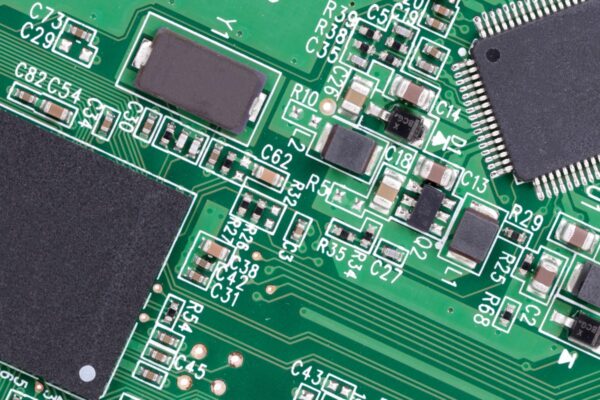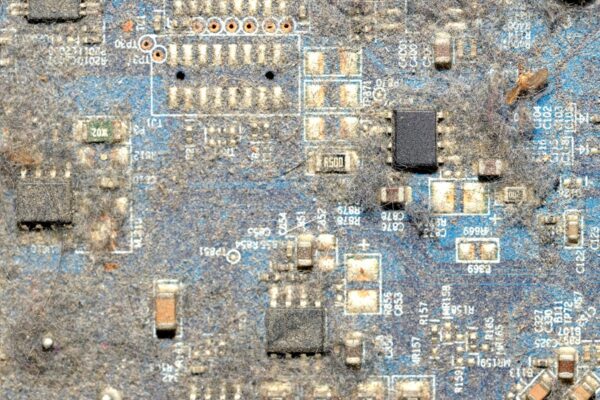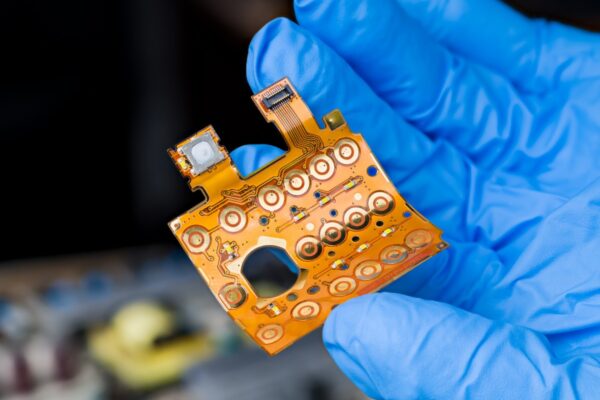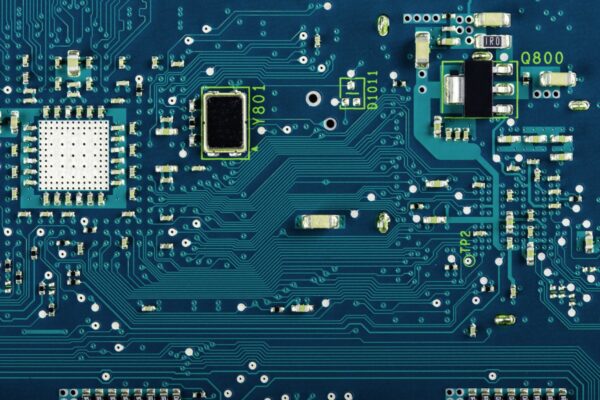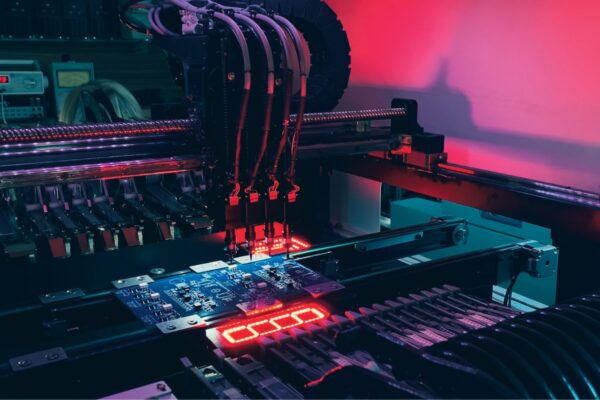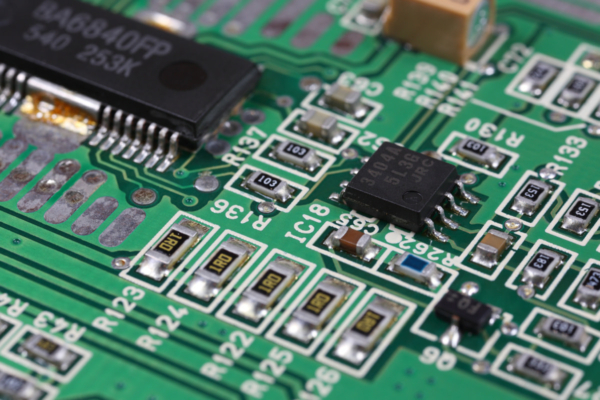What is Conformal Coating
Conformal coating is a thin polymeric film that is applied to a PCB in the PCBA process to protect it from chemical damage and environmental factors. This protective film conforms to the contours of the PCB and its components, serving as a non-conductive and defensive dielectric layer. Applying conformal coatings safeguards the PCBA from exposure to substances or environmental conditions that could potentially compromise its reliability.
Conformal coatings can prevent moisture uptake, which can occur when a PCBA is exposed to high humidity levels. Moisture can lead to issues such as corrosion, electrical shorts, and decreased insulation resistance. By applying a conformal coating, the PCBA is shielded from moisture, ensuring its long-term functionality and reliability.
Conformal coatings also act as a barrier, safeguarding the PCBA from exposure to corrosive substances such as chemicals, gases, and other potentially harmful elements. This protective layer prevents direct contact between the PCBA and these corrosive substances, preserving the integrity of the board and its components.
Furthermore, conformal coatings can modify the dielectric strength of the layer surrounding the PCB, providing protection against electrostatic discharge (ESD). ESD is a sudden flow of electricity between two electrically charged objects and can cause malfunctions or permanent damage to electronic components. By acting as an insulating layer, the conformal coating reduces the risk of ESD and enhances the overall reliability of the PCBA.
Originally developed for mission-critical aerospace applications, conformal coatings have become widely used in various industries, including consumer electronics. They are particularly crucial in applications where electronic components are exposed to extreme conditions such as high altitudes, temperature variations, and vibrations. The adoption of conformal coatings in electronic devices aims to protect sensitive components from environmental factors and ensure optimal performance and durability.
Frequently Asked Questions
What Is the Difference Between Silicone and Acrylic Conformal Coating
When it comes to conformal coating types, there are some differences between acrylic and silicone coatings. While acrylic coatings are known for their hardness, silicone coatings are more flexible and offer better mechanical shock resistance. Additionally, silicone coatings are designed to withstand harsher service environments, have better liquid water repulsion, and offer better chemical resistance. Overall, silicone coatings are soft, yet tough and durable, making them a great choice for a variety of applications.
What Causes Bubbles in Conformal Coating
Bubbles in conformal coating are caused by the entrapment of solvents or air within the coating material. These bubbles can result in various long-term problems with product reliability, such as the formation of conductive path bridges, corrosion of exposed areas, and cracking of the coating due to temperature fluctuations, shock, or vibration.
Is Conformal Coating Necessary
It is crucial to use conformal coating on your PCBs to safeguard them against harmful environments and contaminants. Moisture can accelerate decomposition, lower insulation resistance, and lead to conductor corrosion, making conformal coating an essential protective measure.
What Dissolves Conformal Coating
Solvent selection is crucial when it comes to dissolving conformal coating. Typically, aromatic solvents such as toluene and xylene are commonly employed for this purpose. However, depending on the specific coating, acetone or hydrocarbons like hexane may also be utilized.
How Thick Is Conformal Coating PCB
Commonly, the thickness of conformal coating on a PCB ranges from 1 to 5 mils (25 to 127 microns), and in some cases, it can be even thinner. If the coating exceeds this range, it is likely to be an encapsulate or a potting compound, which offers greater mass and thickness for enhanced board protection.
Can You Solder Through Conformal Coating
It is feasible to solder directly through conformal coatings and Parylene coating in order to remove them. Typically, the resulting finish is deemed satisfactory.
What Causes Orange Peel in Conformal Coating
The issue of orange peel in conformal coating is primarily observed when solvent borne conformal coatings such as acrylics, urethanes, and synthetic rubbers are used. This is due to the uneven drying that occurs on the surface of the coating.
What Is the Difference Between Conformal Coating and Potting
A conformal coating is generally thinner, ranging from 25 to 250 microns, which makes it a lighter alternative compared to PCB potting. Additionally, it occupies less space. Conformal coating offers effective protection against potential risks like corrosion and particulate matter. Moreover, it also provides waterproofing capabilities to safeguard against moisture.
What Is the Difference Between Conformal and Non Conformal Coating
Conformal coating provides protection to the board while allowing for convenient board repairs. On the other hand, a non-conformal coating, also known as potting or encapsulating, is significantly thicker than a standard conformal coat.
Does Conformal Coating Protect Against Water
While conformal coatings can provide a layer of protection against moisture, it is important to note that they are not completely waterproof. Most coatings are semi-permeable, meaning they allow some moisture to pass through. However, conformal coating can effectively prevent current leakage and corrosion caused by ambient moisture.
What if Conformal Coating Is Too Thick
Excessively thick conformal coatings can lead to residual stress, which may result in damage to the electronic device being coated. In such cases, it is necessary to address the issue by either removing and reapplying the coating or grinding it down. The appropriate method to be employed will vary depending on the specific type of coating being used.
